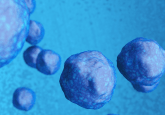Women to Watch: moving cell therapy products towards validation with Stacey Brower

As part of our ‘Women to Watch’ series on RegMedNet, we’re putting Stacey Brower into the spotlight. Stacey is the Process Development Manager at Cook MyoSite (PA, USA), where she is responsible for overseeing all functions of the Process Development department. This includes strategic planning, organization and execution of process/product development initiatives to support full development of their cell therapy product towards validation. Additionally, this also includes the management of process development resources (e.g., personnel and laboratory space).
What inspired you to work in the field of regenerative medicine and cell therapy?
My interest in cell-based applications to human health began with an ‘Experimental Biology’ course that I took in undergrad and continued to grow/deepen during graduate school. I was fascinated with the ability/flexibility to translate cell culture-based platforms into clinical trials and impact on human health, and so was really excited to learn of several cell-based biotechnology companies in the Pittsburgh area. My first professional stint was with a start-up that was developing a cell-based in vitro diagnostic for predicting response to chemotherapy. To be honest, I didn’t know much about regenerative medicine before I joined MyoSite a few years ago but I’ve been fascinated and inspired about the direct application and impact of a cell culture-based platform in the field of regenerative medicine. Cells are so cool!
What are the best aspects of your job? What are the most challenging parts?
Hands-down, the best aspect of my job is the people that I work with. I love cooperative, team-oriented environments because I learn so much from all of the intelligent, resourceful and clever people that I’m surrounded by. In a similar vein, another great aspect of my job is the countless opportunities that I have to learn new content and apply it to our company objectives.
The more challenging (but exciting!) part of my job is charting new(er) territory. Although the idea of cell therapies is certainly not new, the success of bringing them to market (and making them available to the patients that can benefit from them) is. There are frustrations in interpreting standard pharmaceutical development/validation in the context of a cell therapy but it is very exciting to be a part of.
Have you faced any obstacles in your field due to your gender?
I don’t feel as though I’ve faced any significant obstacles in my career due to my gender, although I’ve certainly heard my fair share of comments suggesting that I may not be able to fulfil a role or complete a task because of my gender (e.g., “I don’t expect you to know this”, “you better check with [male colleague]”).
Did you notice any difference in opportunities available to women, or in how you were treated, as you gained more senior positions over your career?
I’ve been extremely fortunate to work for companies that genuinely embrace and create a culture of equality and can say, without a doubt, that gender inequality has had no impact on my professional advancement. If anything, it was me that put on the breaks at times because the need for a healthy work/life balance is of highest importance when I make career decisions/changes; and, in those instances, my decisions have been respected and supported without hinderance of future opportunities for advancement.
In your opinion, what more could be done to promote gender equality in your field?
I believe we need better mentorship at every level. Elementary school, middle school, high school, undergraduate, graduate and the workplace. Seeing/hearing about women in biotech from the youngest ages is impactful and establishes a mindset that women are capable and equal to men in their professional ambitions and pursuits.
What advice would you give to young women hoping to pursue a career in your field?
Assume nothing! Don’t assume that it’s a male-dominated field. Don’t assume that women don’t thrive in the sciences. You know you best, and don’t let the words or actions of others deter you from your pursuits.
Lastly, which women in the field of regenerative medicine have inspired you most?
Every single woman that I’ve had the pleasure of working with. So many different backgrounds, so many unique perspectives and so many areas of expertise. They all have inspired me in their own individual ways.
Acknowledgments
This interview was put together and conducted by our Senior Editor, Sharon Salt, with written responses provided to us by Stacey Brower.
Disclaimer
The opinions expressed in this interview are those of the interviewee and do not necessarily reflect the views of RegMedNet or Future Science Group.
You might also like:





